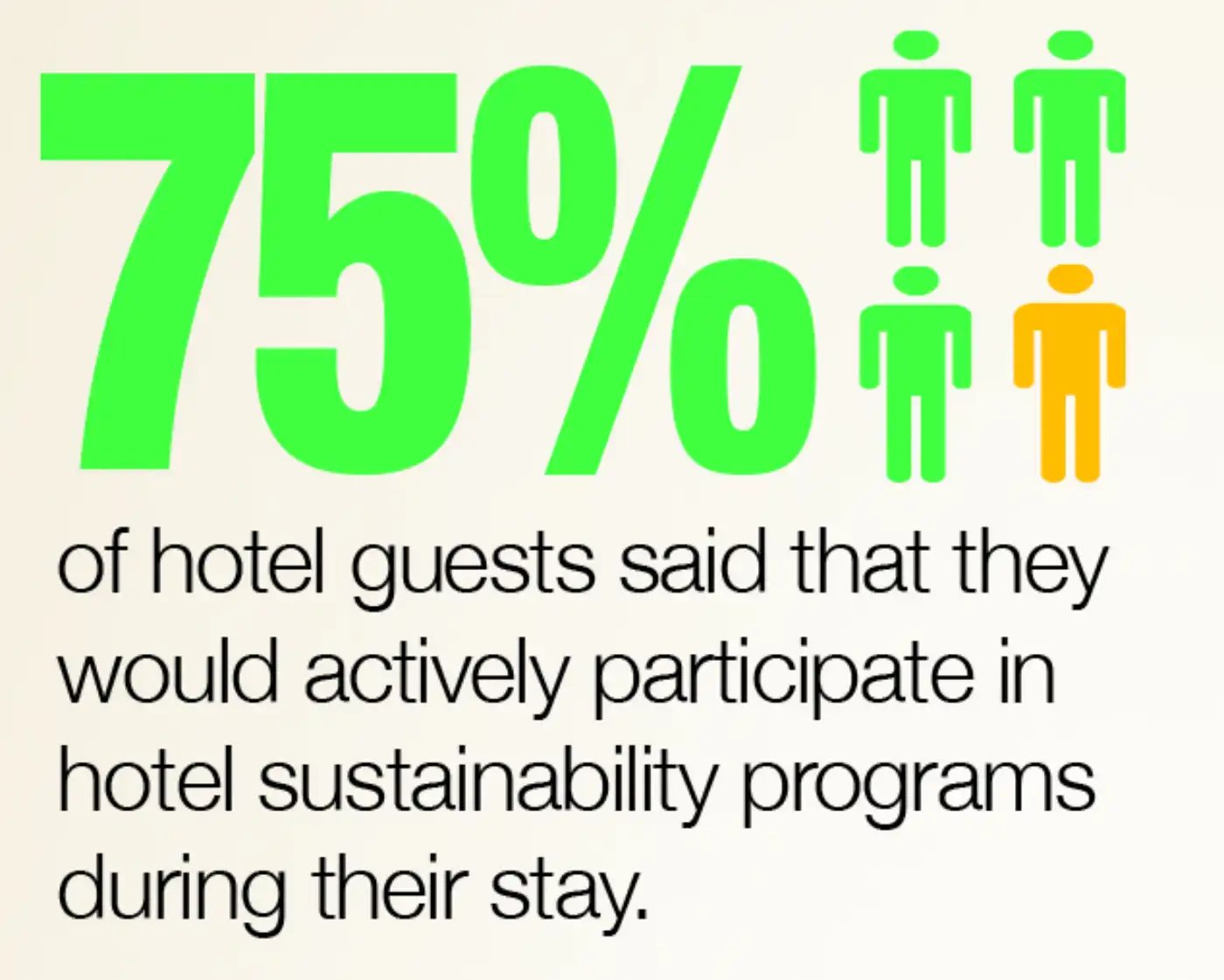
Sustainable Hospitality: How Hotels Can Reduce Energy Costs
What Is Sustainable Hospitality? (and Why You Need to Pay Attention)
As the urgency to combat climate change intensifies, the hospitality industry is undergoing a remarkable transformation, embracing sustainability like never before. Industry leaders are charting the way in finding sustainable ways to host and entertain guests, tapping into the best sustainable hospitality has to offer.
For example, Hilton has pledged to reduce waste by 50% through 2030 and, following the steps of the Paris Climate Agreement, has set targets to reduce carbon emissions. Other brands are following suit, and customers are increasingly looking to give their business to more sustainable companies.
Luckily, making your business more sustainable is surprisingly simple these days. Even switching to energy-efficient HVAC and other equipment upgrades can make a huge difference in lowering emissions and helping the planet. If you partner with an energy-as-a-service company, you can even get these benefits without the cost or hassle.
In this blog, we’ll look at how sustainability is transforming hospitality (especially hotels), the importance of building sustainable hotels and renewable energy, and the future of hospitality.
What Does Sustainability in the Hospitality Industry Look Like?
Sustainable hospitality focuses on minimizing the environmental impact of hotels, restaurants, and other businesses. This involves the efficient use of energy resources, waste reduction, and incorporating renewable energy to help reduce your carbon footprint.
For instance, many hotels are now using energy-efficient HVAC systems, which significantly reduce energy consumption and carbon emissions. These systems, often monitored by advanced IoT devices, optimize energy use based on real-time consumption and ensure no energy is wasted.
But sustainable hospitality goes beyond just energy efficiency. It can also involve renewable energy programs, such as installing solar panels. It can also entail water conservation measures, such as low-flow fixtures and rainwater harvesting, and waste management practices, like composting and recycling programs.
Engaging in these sustainable hospitality comes with a whole host of benefits, not only for the environment, but for guests and employees as well.
|
Tip Looking to improve the sustainability of the restaurant in your hotel? Many sustainable hotels source locally grown, organic food for their restaurants to support local economies and reduce carbon emissions. |
What Do I Gain By Going Sustainable?
There’s a lot to be gained when you go sustainable—from energy savings to more immaterial benefits like a better brand image. Let’s take a look at some of the top benefits.
- Energy savings: The more energy efficient your equipment and buildings, the less power is needed to make guests comfortable and keep business running smoothly. Just making the switch to LED lights, for example, can reduce the energy consumption of lighting by up to 80%.
- Improved brand reputation: Sustainability is not just good for the environment; it's also good for your business. A recent study found that 75% of younger respondents (think Millennials and Gen Z) would be willing to spend more with companies that took the initiative to reduce harm to the environment.
- Regulatory compliance: As governing bodies implement stricter environmental regulations, businesses in hospitality that adopt sustainable practices are better positioned to comply with these regulations. Early investment means less of a financial headache later.
- Risk management: Energy-efficient equipment and renewable energy sources are also key in reducing reliance on fossil fuels. Similarly, water conservation measures can ensure a reliable water supply in areas prone to droughts.
All together, taking a proactive approach to energy and material management improves the likelihood business runs smoothly, even in the face of hiccups like storms and long-running dry weather.
|
Did you know…
Source: Samsung Business Insights |
Sustainable Hospitality and Building Environmentally Friendly Hotels
When taking a sustainability approach to hospitality, there are many different approaches to take and the more practices you enact, the better your impact will be. When possible, consider sustainability during hotel construction and when planning what goes into building. This approach integrates eco-friendly design, construction, and operational practices. Otherwise, you can retrofit your locations with sustainable equipment and strategies.
Popular sustainability projects:
- Energy efficiency: This involves using high-efficiency HVAC systems, LED lighting, and energy management systems.
Companies like Budderfly offer energy-efficiency-as-a-service, providing equipment upgrades and 24/7 monitoring by proprietary IoT devices. These systems optimize energy use based on real-time needs—you’ll never waste energy. - Sustainable building materials: Sustainable building materials are an effective option. Think recycled or locally sourced materials. Additionally, materials with low volatile organic compound (VOC) emissions improve indoor air quality for guests.
- Waste management: Implementing robust waste management strategies, including recycling and composting programs, is also a powerful tool in your sustainability toolbox. Some hotels also donate or sell used furniture and appliances rather than sending them to the landfill.
- Renewable energy: Many leading hotels invest in renewable energy sources, such as solar panels or wind turbines, to further reduce their reliance on fossil fuels.
| Learn more about sustainability with these blogs: |
Sustainable Hospitality and Renewable Energy: How Hotels Are Improving Their Energy Usage
Choosing renewable power for hotels is a strategic decision that can significantly reduce your hotel's carbon footprint. Here are just a few of the options available to hotels.
- Solar power: Solar power is one of the most popular forms of renewable energy for the hospitality industry. Hotels can install photovoltaic (PV) panels on rooftops or other available exterior surfaces to convert sunlight directly into electricity.
If your hotel is in a sunny location, you’re in luck: Your solar panels can generate a significant portion of the electricity you need to do business. Additionally, any excess power generated can often be sold back to the grid, providing another opportunity for revenue.
Marriott has already gotten on the solar bandwagon, their Mariott-Lancaster location in Pennsylvania becoming the company’s first branded hotel powered 100% by solar in 2018. - Energy purchase agreements: If you’re in not in a position where your hotel can install solar panels or generate its own renewable energy, you might want to take a look at Power Purchase Agreements (PPAs) or Renewable Energy Certificates (RECs). These agreements allow hotels to purchase renewable energy indirectly from a provider, which still allows you to offset your carbon footprint.
What is the Future of Sustainability in the Hospital Industry?
Sustainability is poised to be the next big change-maker in hospitality—driven by technological advancements, evolving consumer expectations, and the urgent need to combat climate change.
Energy efficiency is central to it all, with advancements in equipment, metering, and other smart technology enabling more precise control over energy use. The use of renewable energy and solar panel is becoming much more common, as they have become more readily available and cost-effective.
It’s time to start thinking about integrating sustainability into every aspect of operations, from design and construction to daily operations and guest experiences. The future is about sustainability not being just an add-on, but a core part of the hospitality experience.
Sustainability Starts Here, With Budderfly
Are you ready to take your business to the next level of sustainability? As a leading energy-as-a-service partner, we specialize in helping businesses like yours significantly reduce energy consumption and carbon emissions.
With Budderfly, there's no upfront cost. We invest our own capital to provide you with state-of-the-art equipment upgrades, such as new premium HVAC, LED lighting, solar panels, and advanced monitoring systems. Our proprietary IoT devices work round-the-clock, optimizing energy use based on real-time needs. The result? Significant energy savings and a lower carbon footprint.
But our commitment to your sustainability journey doesn't stop there. We provide 24/7 monitoring, delivering measurable, demonstrable results.
Contact us today and take the first step towards a more sustainable future.


